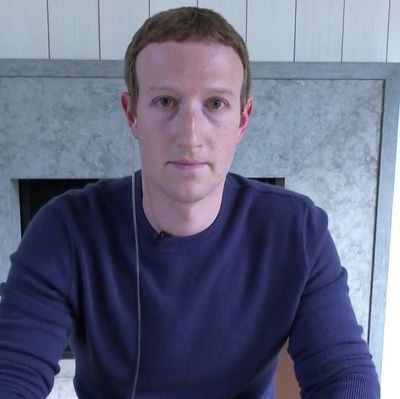
In the month since the coronavirus pandemic began exploding across the U.S., Facebook has pledged to spend more than $200 million. Two weeks ago, the company said it would give away $100 million in grants to small businesses affected by the outbreak, and this morning it pledged another $100 million toward supporting the journalism industry, which is seeing ad rates fall at a precipitous rate. In terms of Facebook’s overall revenue and the money it has stashed away, that $200 million is a drop in the bucket. But it can also be interpreted as a sign of desperation.
In a non-pandemic scenario, Facebook is nearly bulletproof. Its ad revenue comes from a wide variety of clients, so a downturn in one or a handful of industries wouldn’t destabilize the entire operation, nor would the loss of a single big client. Facebook has repeatedly asserted during this presidential election cycle that political advertising, which will see record spending, is a fraction of a percentage of its overall revenue.
What keeps Facebook stable is a constant flow of ad clients and a constant flow of user-generated content of all varieties — photo, text, video — and all levels of accuracy (Facebook has historically tried to position itself as a neutral platform without an editorial mind-set). These constants have buoyed Facebook, even as instability has hit other sectors.
In pandemic mode, however, even Facebook has to contend with the crisis hitting close to home. As local businesses across the country see less foot traffic and fewer customers, their ad spending has decreased (hence the $100 million pledge to small businesses). As films’ theatrical releases are delayed and albums get pushed back, those enormous media budgets are being slashed too. Meanwhile, as Facebook brings in less ad money, people are leaning on it harder than ever, using it to sustain social ties across distances — video chatting, livestreaming, coordinating community outreach in Facebook Groups, and posting to their Stories. Ad spending is dropping significantly as operating costs are rising substantially in kind.
According to the New York Times, an internal report found that half of the news items that users are sharing are about the coronavirus. So Facebook’s announcement this morning seems designed for publications like the Tampa Bay Times, which also announced it was cutting its print production today. Facebook seems keenly aware of its role as a news source in this crisis, despite its prolonged attempt to not be one. A couple of weeks ago, Mark Zuckerberg himself interviewed Dr. Anthony Fauci about the crisis, and this week he and Dr. Priscilla Chan interviewed California governor Gavin Newsom. Chan also happens to be married to Zuckerberg, and both are obviously affiliated with the philanthropic Chan-Zuckerberg Initiative.
Neither of these funds will function as a bailout of distressed industries. But Facebook is in some sense putting its money where its mouth is, identifying two sectors that are vital to its operation and showing that it is, at the very least, attentive to those concerns.
Facebook’s small-business grants cover “$100 million to help 30,000 small businesses in over 30 countries where our employees live and work,” according to a post from COO Sheryl Sandberg. Some of that comes in the form of ad credits — Facebook isn’t spending money it currently has, but is instead foregoing future income. The journalism fund comes with caveats as well. Only a quarter of that dispersal will come in the form of grants to smaller news outlets covering the coronavirus. The other $75 million will be in the form of ad buys. As people turn to local news outlets whose vital purpose has been reinforced by the crisis, Facebook sees an opportunity to acquire more users (or usage). That’s not to say that outlets aren’t in need of the money and won’t use it effectively, only that some of Facebook’s altruism is actually just a business transaction.
Maybe all of this is a relatively cheap PR play for a company worth hundreds of billions of dollars. (Facebook did not offer a response when I asked why Zuckerberg, who has adamantly insisted his company is a platform and not a media operation, felt the need to personally interview Fauci.) But as businesses falter and cut spending in the face of record unemployment numbers and shrinking budgets, the current trajectory Facebook is looking at is unprecedented. It has no clear backup plan if the entire economy bottoms out all at once. Stopping the spread of this virus is a public-health concern, but as Facebook’s philanthropy shows, it’s also an economic one.





























